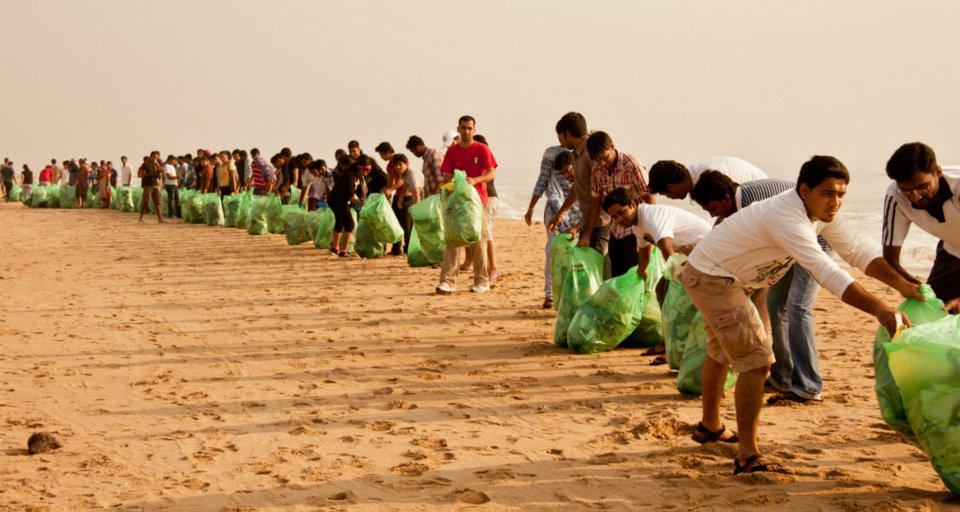“What’s the use of a fine house if you haven’t got a tolerable planet to put it on?”
― Henry David Thoreau,
When we (Chennaities) boast about having the longest natural urban beach in the Country and the second longest in the world, it is important to save and sustain the same, so that our future generations would also take the pride that we take today. This post is an effort to drive home the idea of a coastal cleanup from a broader perspective and also to identify those areas on which I had to muse over and convince myself on before my maiden coastal clean up few years ago.
- Are we duty bound?
- Why ocean matters?
- For whom? – Coastal Cleanup is not only for the people near the coast: it equally applies to people who live on the banks of rivers or accessible to any water body that flows eventually into the Sea.
- How is the idea of Coastal cleaning received across the world – An International Experience?
- Chennai Coastal Cleanup.
- What improvement can we look at in the near future? – Scientific data collection and a reliable database!
a. Are we duty bound? – Drive home the point that we are duty bound
The Constitution of India casts a fundamental duty (although not enforceable) upon every citizen of the nation to protect environment, which includes water bodies.
Fundamental Duty– Art 51 A (g) of the Constitution – “to protect and improve the natural environment including forests, lakes, rivers and wild life, and to have compassion for living creatures”.
The beach and the coast has been the gift of nature and our ancestors have preserved it for centuries and this generation does not have the right to take it away from future generations. It is the birth right of every person born in this soil to enjoy (without polluting) this natural treasure. Already the seawater is heavily getting polluted by the inland waters, which are carrying the pollutants we humans dump them with[1]. Therefore, the ‘duty to protect’ the ruined waters emanates from the ‘inconsiderate act of pollution’.
b. Why ocean matters?
Every second breath you take comes from the ocean. No matter where you live, your life depends on the ocean. Beyond the breaths you take, the ocean plays a critical role in regulating our weather and climate[2].
There is a huge dependence of seafood in the nation and the amazing variety of living creatures, which are found underneath the ocean are some of the compelling reasons to preserve the Ocean. To save the turtles coming to nest in the western coast[3]. Different things you can do to save Ocean.
c. For whom? – Coastal Cleanup is not only for the people near the coast:
Every person who intakes oxygen is essentially affected because of polluting the ocean and dumping debris on coastlines.
The problem of marine debris does not necessarily start in the ocean, but is dumped further inland and washed down into the oceans. Each year there is a vast increase in the number of marine animals injured or entangled in debris found in the oceans. Turtles mistake floating plastic bags as food and thousands of seals, whales, dolphins, sharks and birds die from entanglement in fishing line and other debris[4].
d. How is the idea of Coastal cleaning received across the world?
On the third Saturday of every September, volunteers across the world take part in the world’s biggest coastal clean up, known as International Coastal Clean up Day. The event has been held internationally consecutively for over 20 years now, where people head to the beaches and begin removing debris and rubbish from shorelines, waterways and oceans.
The Indian Picture:
We have few voluntary based organizations conducting coastal clean ups in Indian coast. As part of International coastal clean up day Indian Maritime University joining hands with Ocean Conservancy international organisation has been organizing regular coastal clean ups in Indian coasts[5].
Ocean Conservancy and International Coastal Cleanup:
The International Coastal Cleanup engages people to remove trash and debris from the beaches, lakes, rivers and waterways; to identify the sources of debris and to change the behaviors that cause pollution. It is a global initiative to raise the profile of the marine debris concerns and dramatize the consequences on the continuing aggravation in both developed and developing countries[6].
Aims of the International Coastal Cleanup are:
i. to remove debris from all bodies of water;
ii. to collect valuable information about debris;
iii. to heighten public awareness of the causes of litter and debris;
iv. to make a positive change and to promote water pollution prevention efforts worldwide.
Chennai Coastal Clean Up’s:
Chennai coastal clean up organised by the Chennai Trekking club as also attained significant reach in Chennai and nearby towns with around 2,400 volunteers creating Limca book of record in its third edition held on Feb 5, 2012[7]. The fourth edition of the Coastal clean up is organised in 16th June 2013. With 3,000 plus volunteers promising to participate in the beach clean up, there could be another “dirty record” created in the Limca book of records by collecting the garbage at a much shorter period of time.
Suggestion:
In India we do not have any legal provision prohibiting plastic littering. As the numbers of ‘polluters’ are at large, with the habit of littering very common among us, it requires a strict law to prevent littering.
Time has come to amend the Tamil Nadu Prohibition of Smoking and Spitting Act, 2003 and include ‘littering’, as an offence and spot fines has to be imposed to ensure that our public places, and natural treasures are protected.
Before we press for any legislation against littering; before seawater turns lifeless; before turtles shun-off and desert Chennai’s coast; before the flock of birds that hit Chennai’s coast give up; before fishes and dolphins become mere memories – lets wake up and show our support on the shores of Chennai for cleaner coasts, greener lands and ‘pinkest’ way of lives !
For the love of Beaches,
Durai Murugan
[1] The Water (Prevention and Control of Pollution Act 1974 prohibits the use of streams and wells for disposal of polluting matters. Also provides for restrictions on outlets and discharge of effluents without obtaining consent from the Pollution Control Board.
[3] http://www.thehindu.com/news/cities/chennai/sudden-rise-in-turtle-deaths-along-chennai-coast/article4379577.ece




